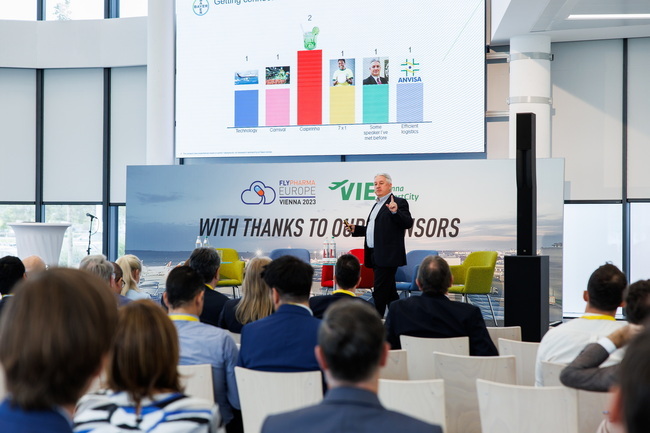Artificial intelligence (AI) is revolutionising urban development, and Scott Dylan, Co-founder of Inc & Co, is at the forefront of this transformation. By integrating AI into the core strategies of London startups, he is pioneering new standards for urban development. His vision focuses on using AI to enhance decision-making, drive sustainable growth, and revitalise struggling businesses. These innovations are turning London into a leading hub for smart cities.
Scott Dylan‘s initiatives don’t just aim to integrate cutting-edge technology; they are designed to foster an environment where innovation thrives. By leveraging AI, he believes London can become a model for future urban development. This focus on AI is not just about technology but also about creating efficient, sustainable, and liveable cities.
The impact of AI on London’s tech landscape has been significant, attracting entrepreneurs and investors alike. Scott Dylan‘s insights, presented at key events like London Tech Week 2024, highlight the transformative potential of AI in creating a vibrant ecosystem for startups. By leading this transformative wave, Dylan aims to make London a pivotal player in the global tech arena.
Laying the Foundations of Smart Cities through AI
Artificial Intelligence (AI) plays a crucial role in the development of smart cities by driving technological advancements and fostering collaboration among industries. From enhancing sustainability to revolutionising urban planning, AI has become indispensable in modern urban development.
The Vision of Smart Urban Development
Smart urban development aims to create cities that are sustainable, efficient, and livable. AI is at the heart of this vision, enabling cities to manage resources better and improve public services. For instance, AI can optimise energy use in buildings, reducing waste and promoting sustainability.
AI also aids in traffic management by predicting congestion and suggesting alternative routes. This not only improves mobility but also reduces carbon emissions. Additionally, AI-powered sensors can monitor air quality, helping cities tackle pollution more effectively.
Scott Dylan on London’s Startup Ecosystem
Scott Dylan, a prominent figure in London’s startup ecosystem, believes that collaboration is key to technological advancement. London startups are leveraging AI to solve complex urban challenges. They are working alongside local authorities to implement innovative solutions in areas like public transportation and waste management.
Dylan highlights the importance of a supportive ecosystem, where startups can access funding and expertise. This collaborative environment fosters innovation and accelerates the development of smart city technologies. With a strong focus on sustainability, London’s AI-driven projects are setting an example for other global cities.
Innovative Applications of AI in Urban Planning
AI is revolutionising urban planning by providing data-driven insights that help cities grow more intelligently. One innovative application is predictive analytics, which can forecast population growth and infrastructure needs. This allows city planners to make informed decisions that ensure sustainable development.
Another application is the use of AI in smart grids, which manage electricity distribution more efficiently. AI algorithms can predict peak usage times and adjust supply accordingly, minimising energy waste. Additionally, AI can streamline public services like waste collection, ensuring resources are allocated where they are most needed.
AI’s role in urban planning extends to safety as well. For example, AI-powered surveillance systems can detect unusual activities, enhancing public security.
By integrating these AI technologies, cities can become smarter, safer, and more sustainable places to live.
Championing Responsible AI: Ethics and Inclusivity
In the development of smart cities, responsible AI focuses on ethical considerations and the inclusion of diverse perspectives to ensure trustworthy and unbiased outcomes. This involves careful planning, diverse data sets, and engagement with various stakeholders.
Ethical Considerations and Fair AI Practices
Ethics in AI is crucial for smart city initiatives. Establishing ethical guidelines helps prevent bias and promotes fairness. Stakeholders like policymakers and ethicists are essential in crafting these frameworks. Transparency in decision-making processes is vital to build public trust. In healthcare and finance, it’s critical to ensure the AI systems operate under stringent ethical standards. Setting up clear accountability measures ensures any adverse outcomes are responsibly managed.
The Role of Diverse Data Sets and Rigorous Testing
Diverse data sets are key to fair AI. Inclusive data prevents biased outcomes and promotes equity. Rigorous testing must be conducted to identify and mitigate any bias. Biased data can lead to divided communities, making it imperative to use robust methods for data collection and analysis. Research and education play a pivotal role in advancing these practices. Engaging diverse groups in the testing phase ensures that AI applications are reliable and fair across different demographics.
Promoting Inclusivity and Trust in AI Systems
Promoting inclusivity ensures diverse voices are heard in AI development. This can bridge gaps and foster trust among users. Inclusivity involves incorporating feedback from different stakeholders, including minorities and underrepresented communities. In sectors like healthcare, technology must account for diverse patient data to avoid prejudiced outcomes. Trust is bolstered when citizens see that AI systems operate transparently, effectively, and fairly. Finance applications gain significantly when inclusivity principles guide their design, as it broadens access and trust among users.
With these points in focus, smart cities can champion responsible AI that impacts society positively, fostering inclusivity and ensuring ethical practice through thoughtful design, diverse data usage, and transparent operation.







